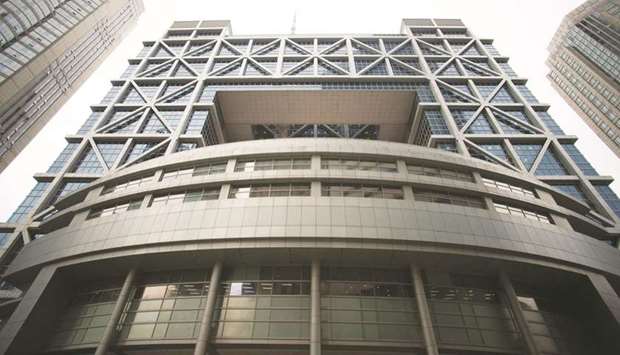Coronavirus fears weighed on Asian markets yesterday despite China reporting a big drop in new cases and easing borrowing costs to cushion the epidemic’s economic impact.
Traders have been betting on central banks, particularly China’s, doing what it takes to keep their economies chugging along as the new coronavirus hits corporate earnings and economic growth.
In a widely anticipated move, the People’s Bank of China lowered its one-year and five-year loan prime rates as policymakers seek to reduce the impact of the virus-fuelled slowdown on companies and households.
But the moves were “not nearly enough”, said Stephen Innes of AxiCorp.
“The PBoC needs to exceed the market expectations, not hit them in this environment,” he said.
“If the PBoC made a bigger splash, the market would have reacted more favourably.”
Sentiment had improved in recent days amid growing hopes that the impact of the virus – which has killed more than 2,100 people and infected over 74,000, mostly in China – will be short-lived.
China reported a big drop in new cases yesterday, fuelling hopes the epidemic is nearing its peak.
Overnight gains on Wall Street and in Europe flowed into Asia at the start of the trading, but soon began to evaporate on several bourses.
Japan’s benchmark Nikkei 225 index closed up 0.3% at 23,479.15, largely helped by a cheaper yen as the dollar strengthened against other major currencies.
Mainland China’s key Shanghai Composite Index was up 1.8% at 3,030.15 on the back of the fresh stimulus.
However, Hong Kong slipped 0.2% at 27,609.16 and Seoul was down 0.7% after a sharp increase in virus cases.
Taipei shed 0.3%, Singapore was off 0.4%, while Sydney was up 0.3%.
The World Health Organisation on Wednesday hailed the “tremendous progress” in fighting the new coronavirus that emerged in China at the end of 2019 and has affected dozens of countries and territories.
IMF chief Kristalina Georgieva warned the virus comes at a time when the global economy is fragile.
She said while the economic impact was likely to be small, “a long-lasting and more severe outbreak would result in a sharper and more protracted growth slowdown in China.”
The market’s relatively sanguine mood could change.
“Over the next couple of months we are going to see very bad economic data coming out of China and the rest of the Asian markets,” Suresh Tantia, senior investment strategist at Credit Suisse, told Bloomberg TV. “Analysts are likely to revise down the earnings estimates. So, after this rebound, we don’t see much value in Asian markets.”
China is the world’s biggest importer and consumer of oil – and prices have been particularly sensitive to the epidemic.
Traders of the main contracts were more concerned, however, that conflict in Libya and US sanctions on a subsidiary of Russian state oil giant Rosneft over its role in Venezuela could disrupt supply.
Brent Crude was flat and West Texas Intermediate was 0.5% higher.

A view of the Shanghai Stock Exchange. The Shanghai Composite Index was up 1.8% to 3,030.15 points yesterday on the back of the fresh stimulus.
